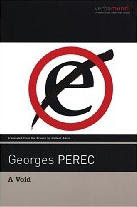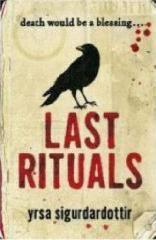
It's a mystery!
1."Do you love a little suspense in your life? Have you ever read a book that keeps you twisting and turning until the last page? Tell us about it (but not too much , we want to be left hanging ourselves). Or maybe there is a series of mysteries that you adore. Why do you keep reading about the same detectives?"***
2. To expand on that a little: the new TV series Castle revolves around a popular mystery writer. There's even talk that a novel will be published supposedly written by Castle himself. TV and books will muddy the entertainment waters once again. I think we all know of the Agatha Christie and Sherlock Holmes series on PBS and BBC as well. Not to mention the new movie Sherlock Holmes starring Robert Downey Jr and Jude Law will open December 25, 2009. Looks pretty exciting!
If you were to be given special TV or movie producing powers, which mystery novel character(s) would you create a TV series or movie for? Who would you cast in the major roles?
*** This week's idea came from Kristen: Bookworm Kristen.
I blame Nancy Drew. I got through a handful of Enid Blyton mysteries in Year 2, but it was the arrival in my reading world of Nancy the following year that really got me hooked on whodunits. I doubt my mother had any inkling of the addiction she was sparking. Reading about a team of crime-solvers near my own age was one thing; reading about the adventures of the glamorous and - to the eyes of someone whose age could be counted on her fingers - grown-up Nancy & co. was entirely another. Detective work was not just a bit of summer-holiday fun, but a cool vocation, complete with sports car and boyfriend. Heck, I wanted to BE Nancy ... well, except for the bits about mortal danger. (So I’m short and totally un-athletic ... but my hair’s the right colour. That counts for something, doesn’t it?)
When I made the jump to adult novels several years later, I met Hercule Poirot, and it got worse from there. At the library I’m irresistibly drawn to books with the deerstalker-hat-and-magnifying-glass stickers on the spine, and for the years for which I’ve kept records Mystery & Thriller generally has the highest number of titles listed, unless it’s been beaten by Non-Fiction. (So far this year, Non-Fiction is trailing by 5.) I’ll read anything from the genteel inquisitiveness of Miss Marple to the supernatural-tinged, stomach-turning bloodshed of Charlie Parker’s cases; from the comic semi-competence of Stephanie Plum to the ruthless efficiency of Sam Spade. Not to mention all the points in between.
Mystery novels are a natural literary corollary of my childhood love of jigsaw puzzles. And I don’t think it’s a coincidence that I really got hooked on them the same year I started having major problems at school, of the “Oh God I’m gonna die of boredom” variety. Armchair crime-solving (or attempts thereat) provided the mental stimulation so desperately lacking between 9 and 3. And since I’m the sort of person who can never get her brain to take a rest, the mystery-reading habit stuck; I like the opportunity to combine reading with a whole lot of thinking.
And now I suppose I really should get around to actually answering the question! There are plenty of detectives I like to read repeatedly: Hercule Poirot, Miss Marple, Stephanie Plum, Matthew Bartholomew, Sherlock Holmes, Nero Wolfe, Jonathan Argyll, Marcus Didius Falco, Lord Peter Wimsey, Inspectors Alleyn, Dalgleish, Morse, and Wexford and who knows who else. I’m sure if I took the time I could think of as many again. What keeps me coming back is the combination of plot and characters - ingenious mysteries that keep me guessing and likeable detectives who stand out from the crowd. A good plot will only get you so far if I can’t remember the main characters a few months later.
I’ve often thought that the Jonathan Argyll series has a comedy-of-errors air that would make delightful viewing, but I haven’t a clue who I’d cast. (Methinks I need to watch more British television.) But then, I’d make a woeful casting director; I have such clear mental images of the characters I read about that it would be near-impossible to find a real-life match. The exception is Ngaio Marsh’s charming and polished Roderick Alleyn. Her novels would make a great television series, in the vein of Agatha Christie but hopefully a lot more faithful to the books. And Jeremy Northam would be perfect for the leading role.
A girl can dream....





































